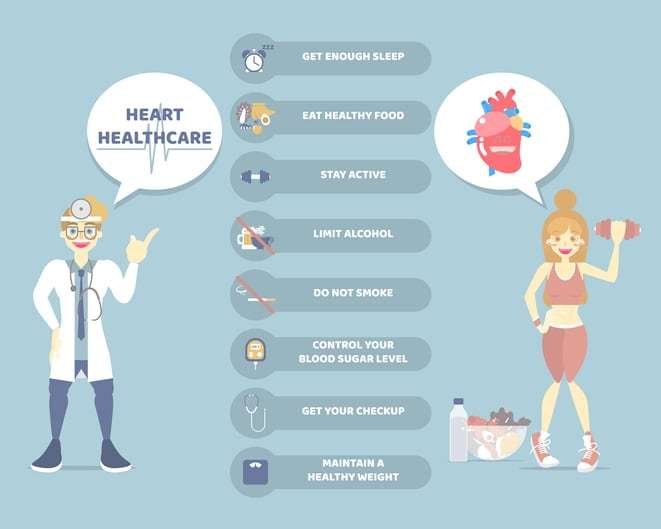That amazing feeling you have when you wake up after a solid night of sleep is only the beginning of the benefits your body receives from restorative rest. It’s key to a heart-healthy lifestyle.
Sleeping isn’t simply about catching a break mentally and physically, it’s also the time when your body regulates brain function, your muscles relax and the blood supply to them increases, blood pressure drops, and hormones are released which are essential to growth. So if sleeping well every night affects your body in a positive manner, does sleeping poorly do the opposite? Research is indicating that, yes, it does. In fact, it can put you at a higher risk for heart disease.
Pursuing a lifestyle of healthy sleep habits is so important for heart health.

What Happens To My Body When I Miss Out On Sleep?
Short term effects of lack of sleep are easily observed. When you don’t sleep well, you can often have trouble focusing, lack ability to perform certain tasks safely, have difficulty losing weight and exercising, and may even start to see a difference in your skin and overall appearance. But what you’re not able to see is what is the cause for most concern, which is the effect on your heart. A study published by the American College of Cardiology showed that in addition to these observable issues, patients who experience insomnia or poor quality of sleep are prone to developing high blood pressure, which can lead to heart disease.
What Is Heart Disease?
Heart disease is an umbrella term that covers a wide array of conditions which affect your heart, including heart attacks, strokes, high blood pressure, and angina. There are many causes and risk factors to heart disease, some of which can be managed and others which cannot. Main risk factors include a family history of the disease and women over 55 are more likely to develop it. Other risk factors include high blood pressure and cholesterol, having diabetes, smoking, being overweight or obese, lacking physical activity, having a history of preeclampsia, and eating an unhealthy diet.
How Much Is Enough Sleep?
There’s no single right answer to the question of how many hours of sleep you should get every night. The National Sleep Foundation recommends at least 7-9 hours of sleep per night for most adults, but that might range depending on your personal health. What is most important is that you wake up feeling refreshed, are able to function during the day, and don’t experience trouble falling asleep or staying asleep. If you’re struggling to meet those hours, or find yourself not being able to live a healthy lifestyle, you should evaluate your sleeping situation and make changes as needed. Exercising regularly can help with your sleep, as does sticking to a good, regular schedule. It’s important to keep your sleeping environment free of distractions and electronics, lay off on the caffeine especially late in the day, and make sure you have a comfortable place to rest your head.
If you have any concerns about your sleep, or if you’re feeling tired frequently and can’t focus, please visit with your doctor at The Woman’s Clinic. We focus on your health as a whole, including issues that might affect your ability to achieve quality sleep.
Make an appointment today to discuss your concerns and how this might be affecting your overall health.



 Close
Close